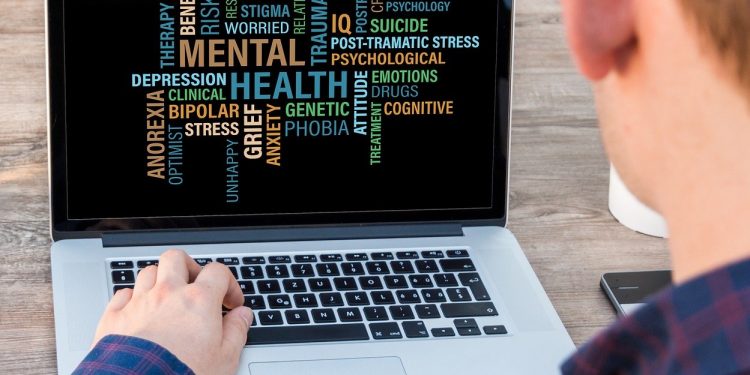Three in four teenagers have experienced physical health issues related to poor mental health since March last year, research shows.
A study carried out for Bupa shows that the overwhelming majority of 13-19 year-olds have suffered as a result of the pandemic.
Half have turned to harmful coping mechanisms, including drink, drugs or self-harm to alleviate symptoms.
The majority feel pessimistic about their future.
Almost half (45%) of parents admit that they need more guidance on how to talk to their teens about mental health
Bupa released the results of the survey as it launched its Teen Minds campaign to support families and children with its mental health services.
They include a Family Mental HealthLine for health insurance customers.
Physical health issues suffered by teenagers include hair loss, digestive problems, migraines, lethargy or weight changes.
Some 4.1 million young people have experienced symptoms of poor mental health over the last ten months, many for the first time, Bupa said.
These issues have manifested as physical health issues for 3.9 million, with many feeling close to breaking point.
Concerns about the impact on academic achievement (73%) and job prospects (70%) after the pandemic are weighing on young people’s minds, particularly among 16-17 year olds – leading to a majority of teens (57%) not feeling or knowing whether they feel optimistic about their future.
Many teenagers have struggled with being ‘stuck’ in the family home for long periods of time (47%), socialising less with friends (55%) and feeling powerless about their situation (31%). Over half of teens (55%) feel their life is in a state of ‘limbo’, while three in 10 (30%) feel the pandemic means they’re missing out on life.
Pablo Vandenabeele, clinical director for mental health at Bupa Insurance, said: “The impact of the pandemic on mental health has been well-documented and teenagers have experienced disproportionate levels of uncertainty during the pandemic, and at an already emotionally turbulent stage in life.
“It’s worrying to see that their mental and physical health has deteriorated so much over this period. What we have seen, both in our research, and speaking with customers over the course of the pandemic, is that parents find this a big challenge, and they are looking for more support on how to manage discussions about their teenager’s mental wellbeing.”
However, the research also found many teenagers are taking positive action to manage their mental health. Almost half (49%) have channelled poor mental health into exercise, while others have socialised virtually with friends (34%), focused on school work (18%), reading (21%) and one in 10 have started a new hobby or learnt a new skill (9%).
And almost half (44%) of teenagers say that lockdown has made them more likely to discuss their mental health generally.
Stephen Buckley, head of information at mental health charity, Mind said: “At Mind we’ve seen a huge increase in young people telling us about mental health issues – this group has been hit with some of the biggest changes to their normal lives, as well as a lack of agency or ability to make decisions for themselves.
“So it’s encouraging to see that many parents are planning to address these issues and have important mental health conversations with their children. I’d encourage parents to take the lead in this, as we all know that teenagers can be reticent, or may not have the words, to say how they really feel. But by making these conversations feel normal and everyday, we can help make sure that those who need help receive it.”





